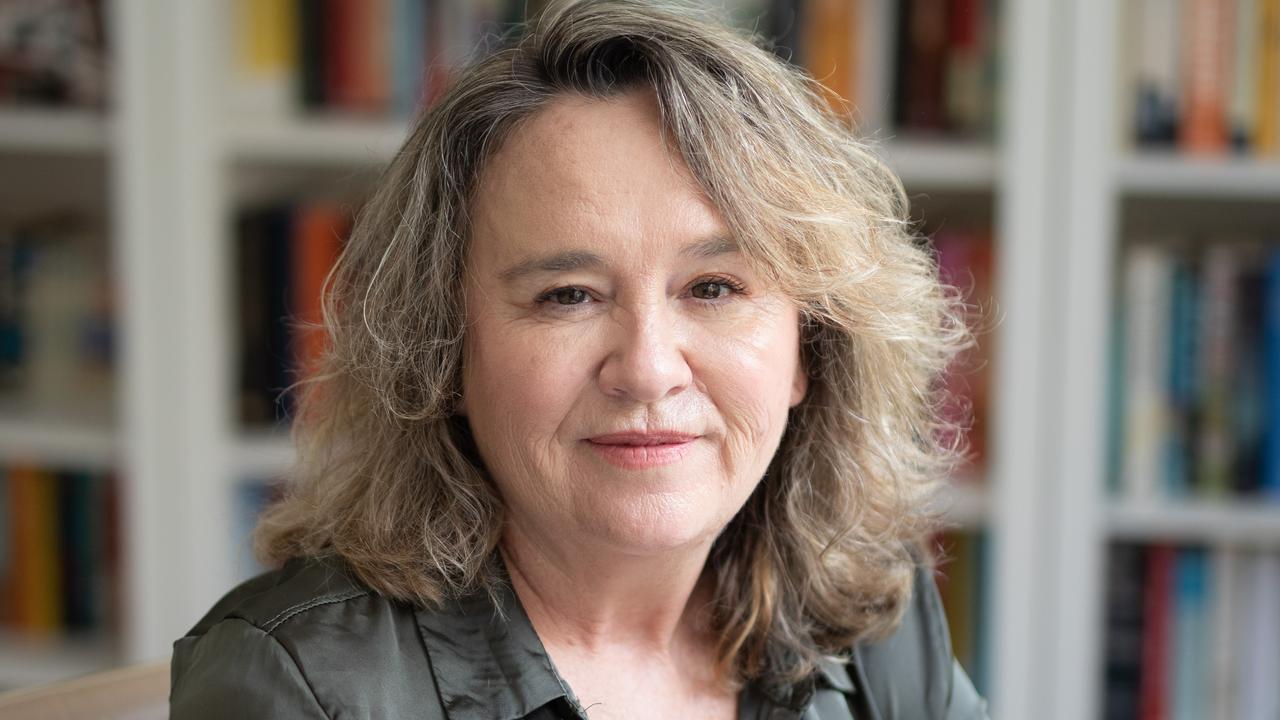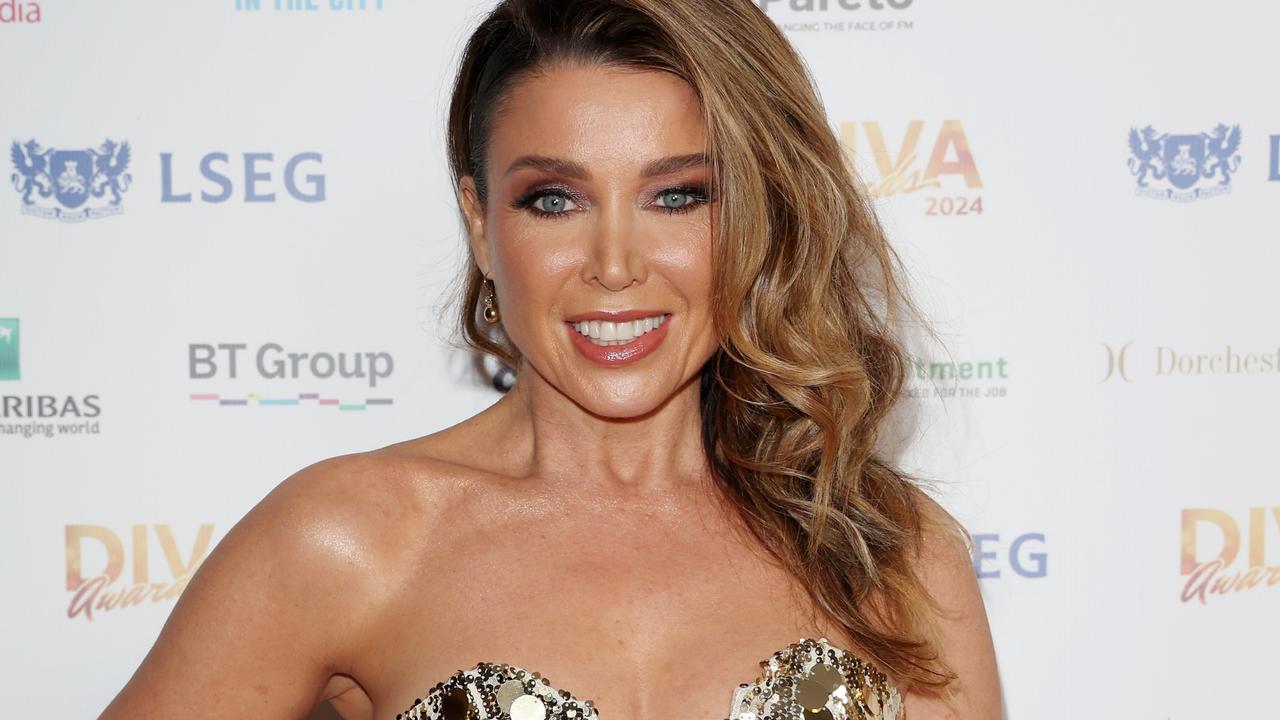Princess Kate’s diagnosis comes amid an alarming increase in under 50s with cancer
Princess Kate is not alone. A local mum reveals the devastating reality of a diagnosis at 40 amid what experts are calling an “epidemic” of early-onset cancer.
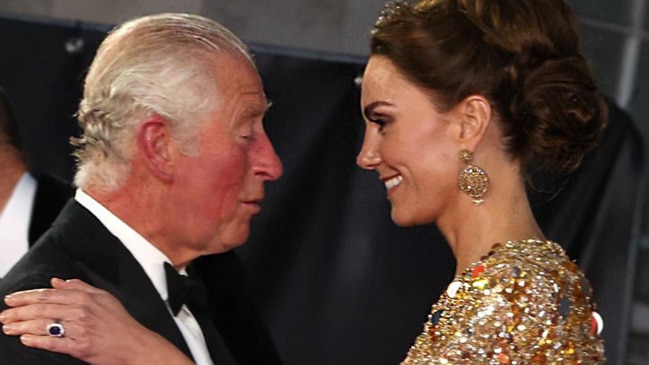
Lifestyle
Don't miss out on the headlines from Lifestyle. Followed categories will be added to My News.
Typically, your 30s and 40s are spent at the height of your chosen career, quietening down after the chaos of your formative years and settling into the rhythm of life.
For some, it’s juggling work and family, or starting to plan for retirement as the milestone half-a-century looms.
But a grim spanner in the works has become a reality for this age group, as an increasing number of people worldwide are being diagnosed with cancer before their 50th birthday.
In March, news of Catherine, Princess of Wales, receiving preventive chemotherapy after cancer was discovered following abdominal surgery in January shook the globe.
The 42-year-old wife of the heir to the British throne did not disclose the type of cancer she is receiving treatment for, but the news has prompted renewed attention on what experts are calling an “epidemic” of early-onset cancer.
Just like Princess Kate, Adelaide mum Renata Potoczky was 43 when doctors told her she faced a 31 per cent five-year survival rate with advanced ovarian cancer.
Ms Potoczky, now 45, was faced with a heartbreaking conversation with her daughter, who was 10 when she was diagnosed in February 2022.
“The hardest part was having to scare my daughter,” the business innovation and digital media teacher told The Advertiser.
“We gave her reassurance that life goes on and gave her permission that she can still be happy, she’s allowed to be happy. She can go to parties and be with her friends.
“We had these amazing times of her coming and sitting on the bed, watching the news and playing with the dog.
“Even now, she still says ‘mum, you told me you were going to be okay’. It’s a really great opportunity to show them how to cope, ask for help and that it’s okay to be scared.”
It’s a heartbreaking reality Princess Kate touched on in her video message, revealing she and Prince William had together faced the challenge of telling their three children – George, Charlotte and Louis – “in a way that’s appropriate for them and to reassure them that I’m going to be OK”.
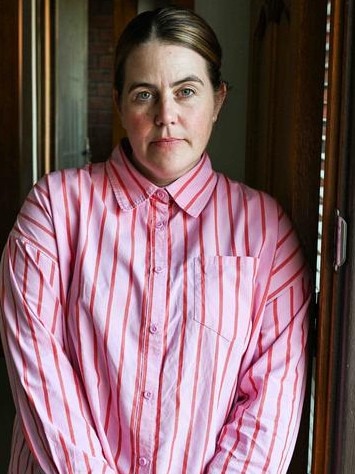
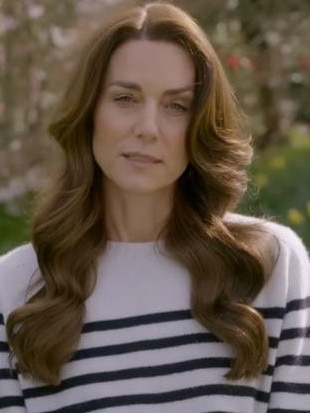
In numbers: Early-onset cancer ‘epidemic’
A recent study published in the British Medical Journal estimated that by 2030, the number of early-onset cancer diagnoses could increase by roughly 30 per cent worldwide — and the number fatalities could rise by about 20 per cent.
US researchers have stumbled upon a potential explanation, with experts from Washington University in St Louis finding the generations with higher cancer rates have cells and tissues in their body aged old beyond their years.
In other words, people born after 1965 — aged 59 or younger — may be biologically older than their chronological age.
Similarly, a 2022 study published in Nature found diagnoses of common types of cancer in the under-50s had been rising since the 1990s.
The study used population data from several countries, including Australia and England, with researchers describing the trend as an “early-onset cancer epidemic”.
The Australian Institute of Health and Welfare (AIHW)’s latest Cancer in Australia report, published in 2021, found cancer diagnoses had increased in people aged 40 to 59 more than any other age group.
A snapshot analysis of the data for five types of cancer – bowel, kidney, uterus, gallbladder and pancreas – published by researchers at Sydney’s Daffodil Centre last year found rates were increasing among Millennials, with a particular increase in bowel cancer among the 20 to 39-year-old age group.
Between 1991 and 2021, analysis of patients in their 30s showed a there was 200 per cent increase in gall bladder (to 0.3 cases per 100,000 people), a 168 per cent increase in uterine cancer (5.1 per 100,000), a 153 per cent increase in bowel cancer (15.2 per 100,000), an 89 per cent increase in kidney cancer (3.6 per 100,000) and an 83 per cent increase in pancreatic cancer (1.1 per 100,000).
Locally, a Flinders University study shows the global incidence of pancreatic cancer in 15 to 49-year-olds had significantly increased over the past 20 years.
Adelaide mum ‘just like Princess Kate’
Renata Potoczky was a busy working mum in her early 40s when she was diagnosed with cancer.
In November 2021, Ms Potoczky developed a rash on her legs, chest and forehead and started suffering muscle fatigue and virus-like symptoms. Three months later, after a frustrating rush of medical visits and tests, she was diagnosed with ovarian cancer.
Her weakened muscles – which were collateral damage in her immune system’s fight against the cancerous tumours – had sounded the alarm.
“Looking back, I had no significant symptoms that would easily identify ovarian cancer, even though I was in the late stages,” says the St Marys mum-of-one, who had a hysterectomy and omentectomy before – just like Princess Kate – started preventive chemotherapy.
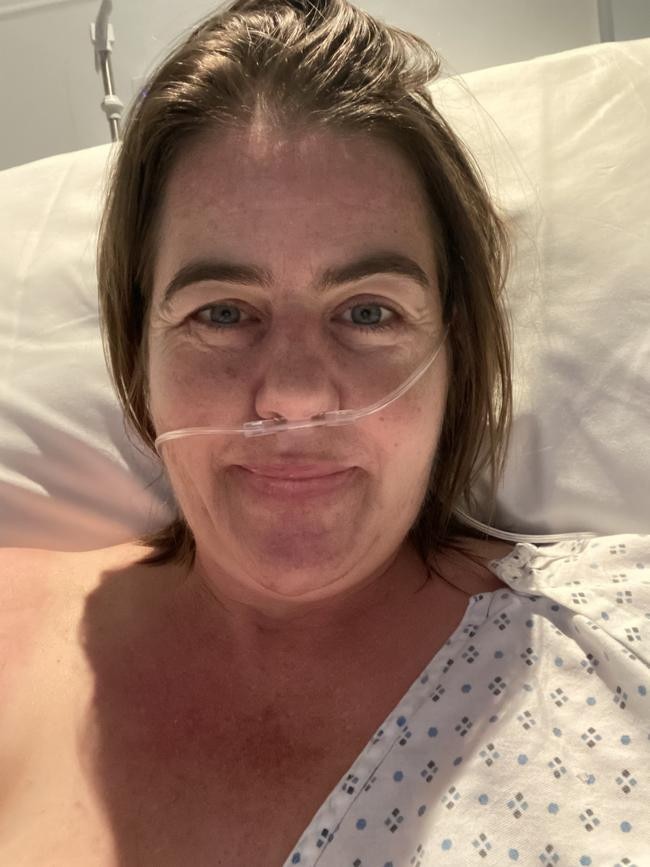
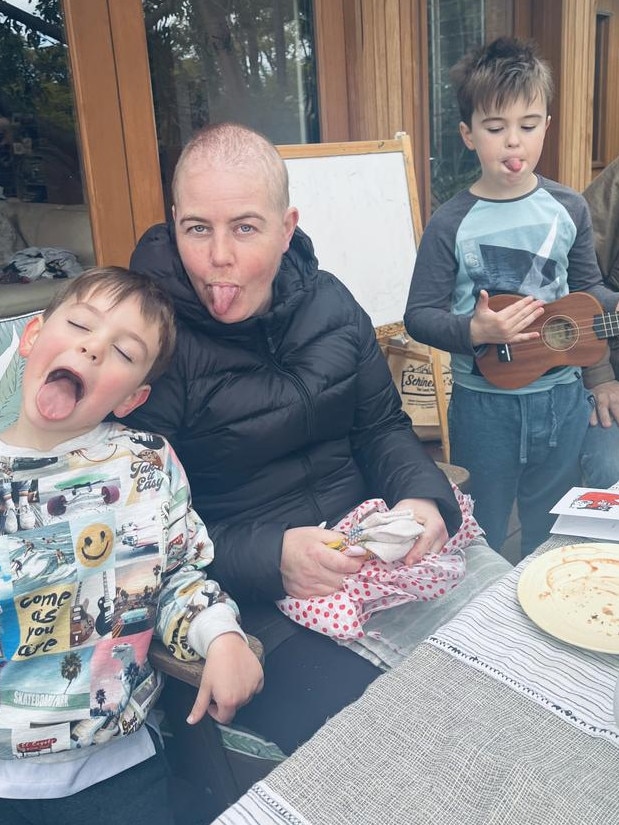
Clare dad dies after ‘shoulder pain’ was actually cancer
The last words Clare vineyard manager Benjamin Mitchell uttered to his loving wife Johanna were “I love you”.
The 38-year-old had been suffering with shoulder pain for the past year. Tests showed he had torn his shoulder and needed surgery which he decided to schedule for after the vintage in 2024, but he never made it.
After the pain in his shoulder worsened, Mr Mitchell, who is survived by his wife and two young sons, Hugo, four, and Thomas, one, was brought to Clare hospital then transferred to the Lyell McEwin in Adelaide.
“He had extensive testing which showed he had secondary peritoneal cancer with (an) unknown primary,” his wife Johanna, 38, said.
“The shoulder and back pain were referred pain due to the cancer.”
Doctors told Ben he was terminal and without treatment he’d likely only have one to two weeks to live.
“They gave the option of trying chemotherapy but it would have lots of side effects and if he responded as well as he possibly could, there was a 10 to 20 per cent chance that it might buy him an extra month or two,” Ms Mitchell said.
“Ben decided against the chemotherapy.”
He was transferred to the palliative care unit at Modbury Hospital and later the Clare hospital to be closer to his family.
He passed away on March 8, with his wife telling The Advertiser: “I will remember his infectious laugh, and his inclusiveness and his kindness.”
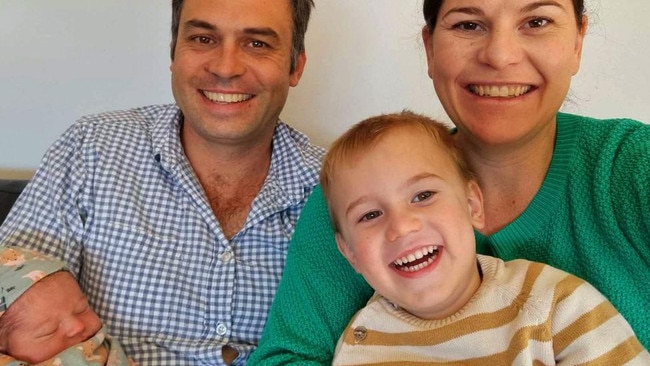
Former Australian Idol contestant reveals diagnosis
Singer Courtney Murphy, 44, shared his diagnosis with advanced bowel cancer this week, with his family revealing he is in the “fight of his life”.
Mr Murphy’s siblings Chris and Kieran made the shocking announcement on Monday, launching a GoFundMe appeal for the beloved musician, who appeared on Australian Idol in 2004.
“Our beautiful brother Courtney Murphy is in for the fight of his life,” they said.
“It is with heavy hearts that we share Court has been diagnosed with advanced stage bowel cancer. It’s very serious.”
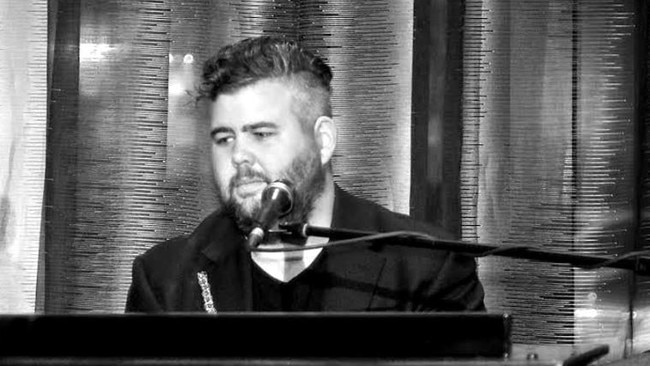
Mr Murphy, a 44-year-old husband and father of three, burst to fame as a contestant on the second season of Australian Idol, where he finished in third place.
He has performed in Perth for 20 years and also landed a role in the Queen musical We Will Rock You.
But now he is stepping back from the stage to focus on his cancer fight.
“As a self-employed musician, with a wife and three young children, Courtney will not be able to work for the foreseeable future, which leaves his young family fighting much harder than we want them to be,” his brothers said.
Actress Olivia Munn shares breast cancer journey at 43
Mum-of-one Olivia Munn announced in March that she was diagnosed with breast cancer in April 2023 and underwent a double mastectomy shortly thereafter.
The X-Men actress, 43, explained that she and her sister Sara Potts tested negative for the BRCA gene — the most well-known gene to cause cancer — and her mammogram came back clear, but her doctor decided to calculate her Breast Cancer Risk Assessment Score just in case.
“The fact that she did saved my life,” Munn wrote in a lengthy statement shared on Instagram, noting that her lifetime risk was 37 per cent.
Her doctor prompted the actress to go for an MRI, then an ultrasound and finally a biopsy that confirmed she had luminal B cancer in both breasts, which is an “aggressive, fast moving cancer.”
Munn underwent a double mastectomy 30 days later and has gone through four surgeries total over the past 10 months.
“I went from feeling completely fine one day, to waking up in a hospital bed after a 10-hour surgery the next,” she wrote. “I’m lucky. We caught it with enough time that I had options.”
Munn shares a two-year-old son with partner John Mulaney.
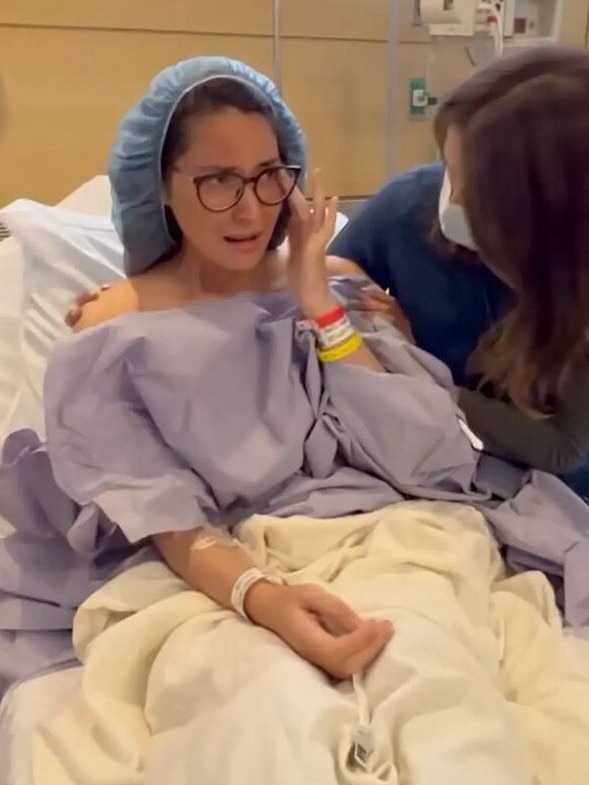
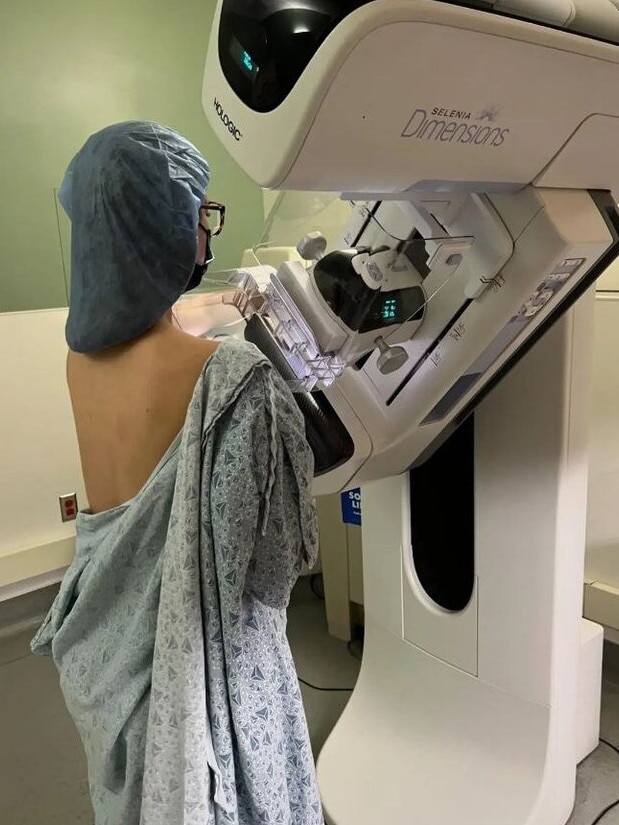
What treatment do under 50s receive?
Preventive chemotherapy is a treatment given before or after surgery, or another “primary” treatment, to reduce the chance of cancer returning or spreading.
Along with surgery, some people may receive radiation therapy. This can also be offered prior to surgery (neoadjuvant treatment), after surgery (adjuvant treatment) or for the management of advanced disease to target local symptoms (palliative treatment).
Several recent analyses of cancer rates among under-50s have shown increasing incidence rates not explained by the introduction of screening programs, which typically focus on older populations.
Push to lower screening ages
The increase in cancer diagnoses among younger adults has fuelled a push to lower cancer screening ages.
Last year, the National Health and Medical Research Council dropped the recommended screening age for bowel cancer from 50 to 45 following a campaign by Bowel Cancer Australia.
However, federal government funding has yet to be provided for screenings for the 45 to 49-year-old age group.



